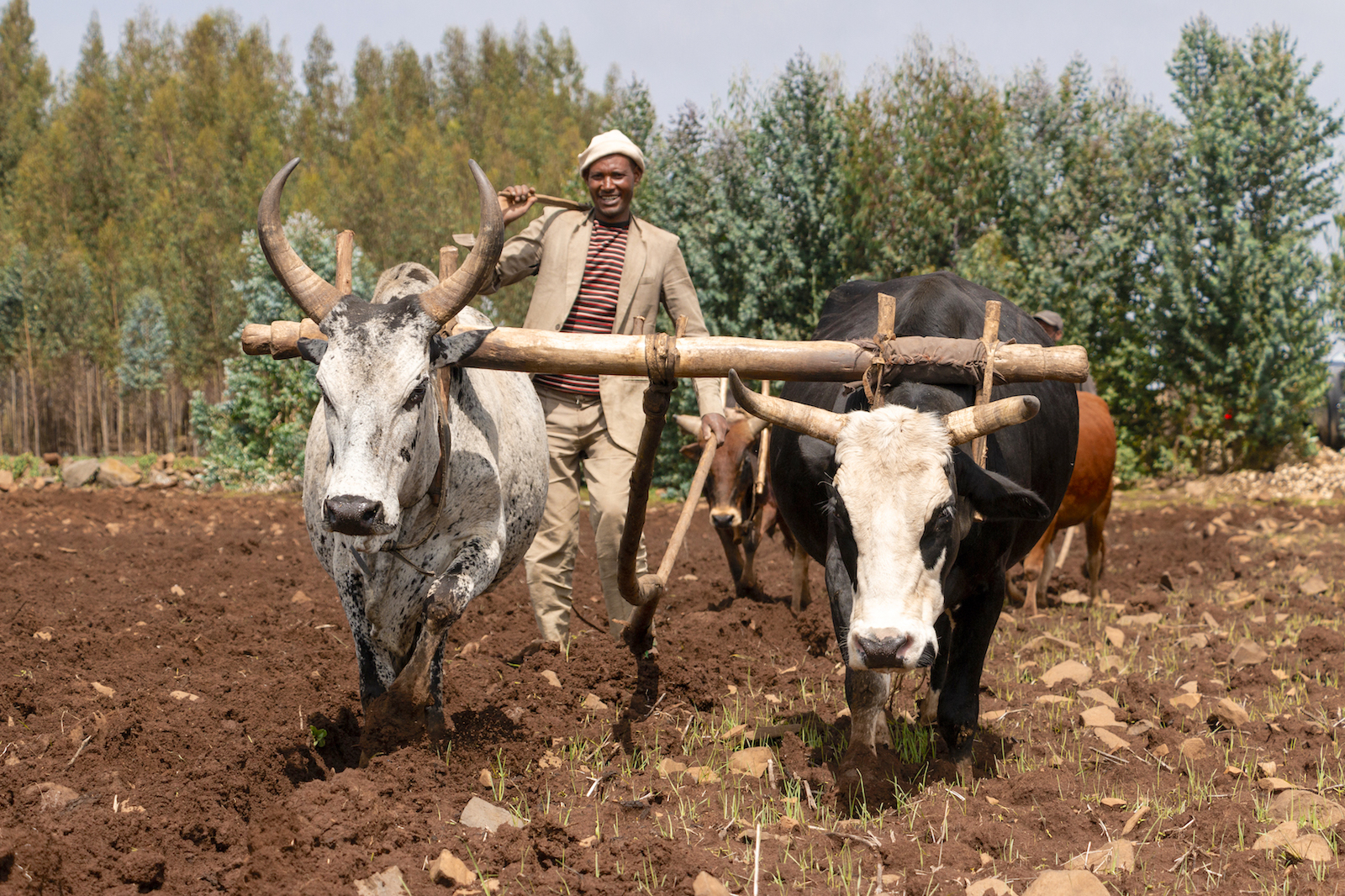ADDIS ABABA, Ethiopia (CIMMYT) — Ethiopia’s leading agriculture and policy specialists will craft a new strategy to dramatically raise national wheat production and achieve self-sufficiency for the crop by 2022, at a special conference organized by the Government of Ethiopia and the International Maize and Wheat Improvement Center (CIMMYT) for November 23, 2018.
Annual imports to satisfy Ethiopia’s demand for wheat — one of the country’s four key food crops — now cost more than $600 million and expose national food security to capricious global price shifts for grain, according to Mandefro Nigussie, Director General of the Ethiopian Institute of Agriculture (EIAR).
“Ethiopians now consume some 6.5 million tons per year but the country’s 4.2 million households grow only 4.6 million tons on 1.7 million hectares and demand for the crop is rising, as more people move to cities and change in life style,” Nigussie explained.
National wheat yields are steadily climbing but still average only 2.7 tons per hectare; well below global standards, according to Bekele Abeyo, CIMMYT wheat scientist and Ethiopia country representative.
“There’s great potential to expand irrigated wheat production, especially in the lowlands along the major river basins,” Nigussie said. “In the Ethiopian highlands, wheat’s traditional environment, more farmers need to use high-yielding, disease resistant seed and modern farming practices. Even modest levels of technology adoption can provide yields as high as 4 tons per hectare.” Wheat yield can also be increased significantly by treating acidic soils and by making broad-beds in vertisol soil areas.
Called “Wheat Self-Sufficiency in Ethiopia: Challenges and Opportunities,” the consultative workshop builds on recent successes and lessons in Ethiopia of the Wheat Initiative, an international partnership of private and public organizations that conducts wheat research for food security and to help wheat farmers in diverse environments to improve and stabilize their yields.
To be held in the Hiruy Meeting Hall at the headquarters of the Ethiopian Institute of Agricultural Research (EIAR), Addis Ababa, the event will draw some 70 participants, including representatives of Ethiopia’s ministries of agriculture, EIAR, regional agricultural research institutes, the Ethiopian Seed Enterprise, Oromia Seed Enterprise, and the Agricultural Transformation Agency. Adding their experience and ideas will be experts on wheat trade, irrigation and energy, finance and economic cooperation, along with representatives from the Regional Bureau of Agriculture, millers associations, funding agencies, and global organizations including the International Center for Agricultural Research in the Dry Areas (ICARDA) and the International Food Policy Research Institute (IFPRI).
“Aims will include strengthening wheat research and development partnerships, tapping into policies that foster competitive and profitable wheat farming, and supporting national efforts both to reduce imports and end poverty and food insecurity,” Abeyo explained. Kristie Drucza, Gender and Development Specialist at CIMMYT, also notes that, “We see striking opportunities to raise productivity by empowering women in wheat farming, fostering their access to knowledge, technology, and financial resources and their voice in decision making.”
WHAT:
“Wheat Self-Sufficiency in Ethiopia: Challenges and Opportunities” conference
WHEN:
Friday, November 23, 2018
WHERE:
Hiruy Meeting Hall
Ethiopian Institute of Agricultural Research (EIAR)
Addis Ababa, Ethiopia
https://goo.gl/maps/YPN5vuGb5qB2
For more information, to attend the conference or for media interviews, please contact
Jerome Bossuet, Communications Officer, CIMMYT. J.Bossuet@cgiar.org
Ethiopia and CIMMYT. Since 1970, Ethiopian farmers have had access to more than 100 high-yielding bread and durum wheat varieties developed and spread through collaboration among EIAR, Ethiopia’s regional agricultural research institutes, and CIMMYT, whose work has contributed to 70 percent of Ethiopia’s wheat varietal development. Use of these high-yielding, disease resistant varieties, along with supportive government policies and better cropping practices, have caused Ethiopia’s average annual wheat production to grow more than double since the early 2000s.

 Nutrition, health and food security
Nutrition, health and food security 